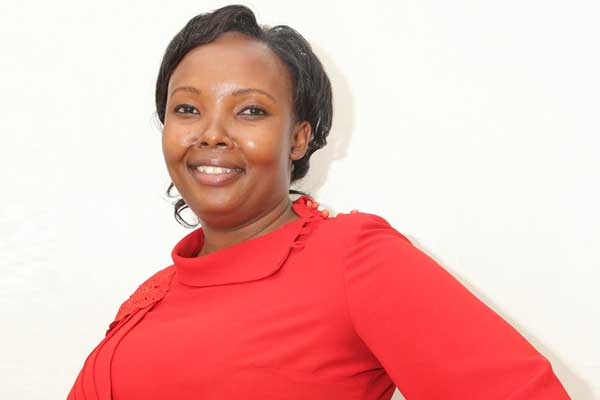
Jane Kagiri is reaping the fruits of preferential procurement, launched by the government last year, for women and other special groups.
For six years, Jane has been the managing partner of Creativedge Solutions, an IT (now also a tendering firm), but bidding for tenders was a foreign concept to her.
“Although I had a growing business, I had never bid for a tender before,” she says.
When the new rule to set aside tenders for special groups, including women, was announced last year, she saw a new opportunity to spread her wings. The prospects of winning her first tender filled her with anxiety as she wondered whether her application would be make the cut.
“I feared that I may be unfairly boxed out to pave way for renowned applicants. If they asked for a bribe to register my business at the National Treasury or to produce my tax certificate, I’d be done.”
Nevertheless, she applied. “I did not want to one day look back and wonder what I would have achieved if I had applied,” she recalls.
She won her first tender worth Sh200,000 to supply computer accessories to a government ministry.
“It was a small tender but I knew that it had opened the door for me to start doing business with the government.”
And six months ago, she bagged a Sh3 million tender to supply more computer accessories to another government ministry.
Evidently, preferential procurement for special groups has set off women on their path to easily earn their first million through supplying items to the government. So far, women, youth and persons with disabilities have won tenders worth more than Sh1.4 billion.
According to Rahab Nyakio, a procurement consultant based in Nairobi, the procurement rule is the new frontier for women to enrich themselves.
“This is a profitable platform. Those who apply diligently and without giving up will inevitably reap huge profits,” she says.
Esther, the owner and managing director of GlobeTrack International, attests to this. She says: “I lost my first tender but I didn’t give up. I kept applying and six months ago, I bagged a media and monitoring tender with an insurance parastatal.”
Linet Aswani who plans to make her first bid soon, believes that it is very easy for women to get government tenders now, unlike in the past when the whole process was shrouded in mystery.
“All you need is to ensure that you have read, understood and met the specific requirements in a tender, and of course apply.”
Although many women win tenders without a solid source of capital, some have learned to beat financing barriers by using Local Purchase Orders (LPOs) to negotiate with the government department that advertises any particular tender.
Eunice Wamweru is one of these women. After winning her first tender to supply furniture and fittings, Eunice was able to negotiate a 50 per cent payment to facilitate part of her supplies.
“I didn’t have enough funds but the contract gave me enough ground to negotiate for an upfront pay,” she says.
“I had done my research well and knew that the law provided for such a negotiation.”
FIRM FOOTING
Ms Nyakio adds that although the procuring agency may take longer than 30 days to pay, it is mandated to facilitate invoice discounting arrangements with the bank to help advance credit to the women who apply. Dorothy Wakio Mwaengo, who won a tender to supply computer accessories, agrees.
“The contract gave me a firm footing, and our company could comfortably approach a financier to get credit. However, it is always advisable to ensure that you have a good agreement with the procuring agency just in case the delay in payment goes beyond what you agreed with your financier.”
Nonetheless, this 30 per cent public procurement rule that favours women (and other groups) has not been free from challenges. Very telling was the revelation that only two per cent of women youth and disabled people had applied for the tenders. Many capable women who could easily bid for tenders successfully seem to have been left out in the cold. Why is this?
According to Esther, the procurement rule should be re-thought.
“Some of us keep applying because we are determined to succeed. But there are many who become disillusioned after failing to pre-qualify.”
Esther recalls losing a two-year media monitoring tender in “unfair” circumstances last year.





